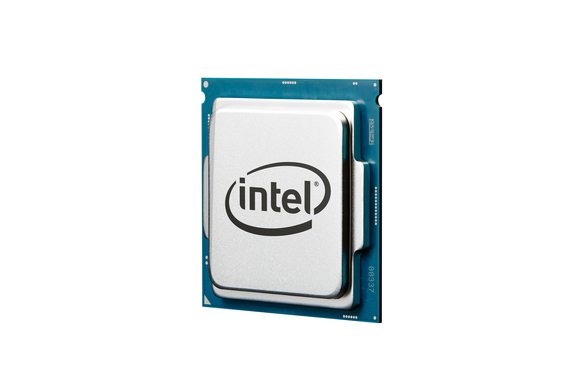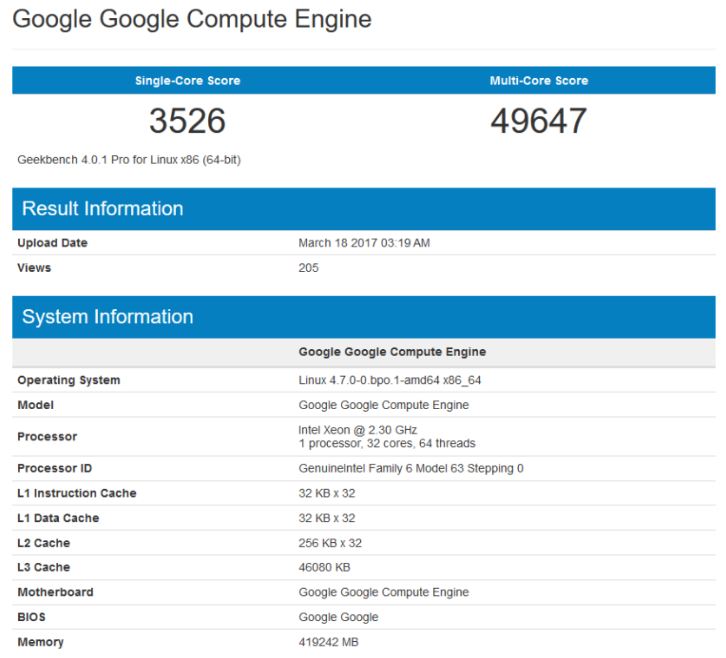An ultra-powerful Intel chip — the exact nomenclature of which is still unknown — has been leaked out in a Geekbench performance test. The chip appears to be a Skylake-EP Xeon part that was submitted to Google Compute Engine team for preliminary prototyping.
Note that this new revelation is consistent with all the murmurs we have been hearing about Google Compute Engine now offering extended core counts to their clients.

The chip in question pulls off an amazing performance by scoring 3,526 on single core test, and as much as 49,647 points in multi-core tests. What’s even more encouraging is that typically these Xeon chips do not fare nearly as good in single core tests. The chip being discussed here, on the other hand, appears to be somewhat special (we will get there in awhile).

The aforementioned score is definitely one of the highest all-core Geekbench score for a single socket, single package CPU. This new leak basically only asserts that the tested CPU has 32 cores, thus qualifying as one of the hugest dies coming from Intel.
Mysteriously, though, the documentation of the Skylake Purely platform available says that it maxes at 28-cores/56-threads. The Geekbench revelation challenges that considering the Family 6 Model 63 designation puts it in the Xeon E5-2699 flagship category.
Also, being a Skylake part, it will carry the suffix “V5” too for a full branding of Xeon E5 2699 v5. However, all being said, despite the documentation maxing it out at 28-core/56-threads, the processor has been covered extensively on a Chinese forum and it appears to be genuine.
It boasts a base clock of 2.1 GHz and has an impressive PCB as it is optimized for the latest LGA3647 socket. And most excitingly, the core count basically breaks apart everything that Intel had done previously.
[Note: One of the underlying reasons that made Intel raise the core count in the flagship probably has a lot to do with the fact that AMD is prepping to roll out its Naples chip very soon and it will be coming equipped with 32-cores under a single CPU package.]
